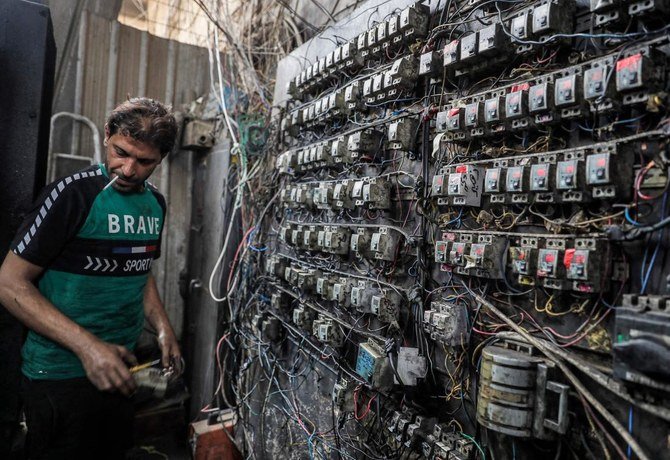Iran, which normally supplies around a third of Iraq’s gas and electricity, has drastically curtailed the amount of energy it is providing to the country, in what some believe is an attempt to force the country to pay millions in unpaid bills.
Iraq’s Minister of Electricity Majed Mahdi Hantoosh submitted his resignation this week, following calls for him to step back by opposition figures including powerful Shia cleric and militia leader Muqtada Al-Sadr.
An official at Iraq’s electricity ministry told The Independent there were now as many as 18 hours of power cuts a day on average, impacting the operation of homes, hospitals and businesses.
But “the resignation of the minister is not the solution,” he added.
According to reports by the Associated Press, four cross-border electricity lines from Iran into Iraq were showing zero output, and gas imports too have dropped to negligible levels.
“Gas imports from Iran range from 1.5 to 1.8 billion cubic feet per day,” Yesar Al-Maleki, Gulf analyst at the Middle East Economic Survey, said.
“Now, we see electricity generation in the south collapsing below 1 GW, meaning not just these lines are offline but even gas flow is down.”
The impact of these reductions has been immediate and drastic.
Basra province alone requires 4,000 MW during the summer but is currently only receiving 830, according to the Associated Press.
Across the country as a whole, energy supplies are still well below the required amount. Demand usually sits at between 20,000 and 30,000 GW, but the country was receiving just 12,500 this week, Sajad Jiyad of The Century Foundation told The Independent.
“We’ve never met demand, we have always had blackouts and generators but now it is very severe,” he said, adding that most places have only four or five hours a day of power from the national grid.
“It is the beginning of a summer of discontent that harks back to 2018. I think we’ll have more protests kick off very soon especially if we have another COVID-19 lockdown. If people are stuck at home with no power, it will only lead to more anger.”
There are concerns that this year’s energy issues will lead to a repeat of 2018, when widespread protests brought the country to a standstill, toppled the government, and saw hundreds of protesters shot by police and militia operatives. Those protests also coincided with Iranian power cuts over non-payment issues.
Source (Click Here)


 RSS Feed
RSS Feed